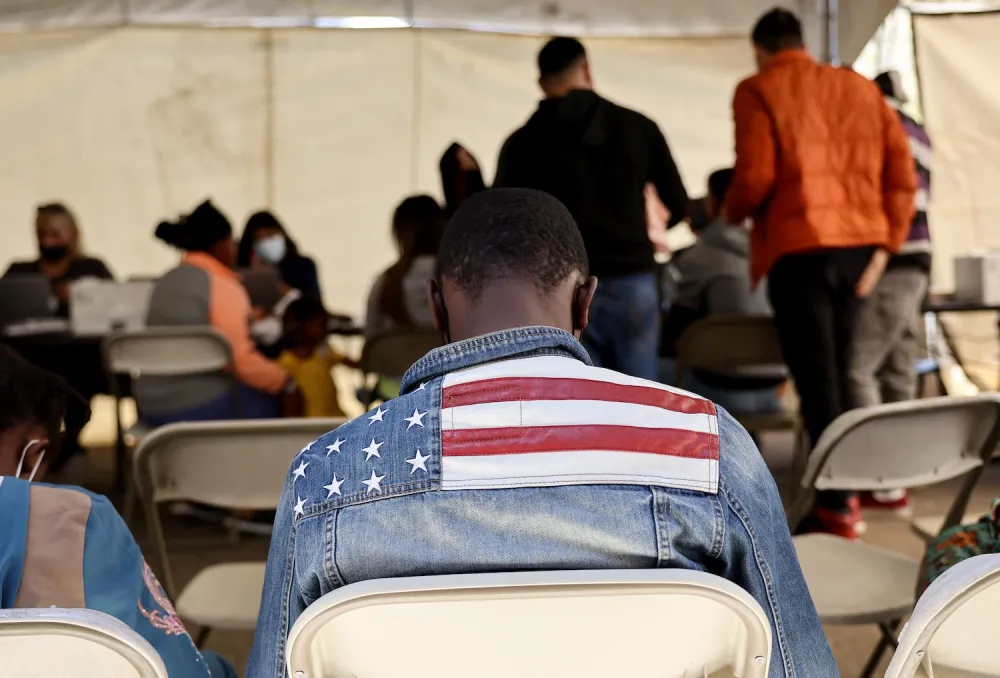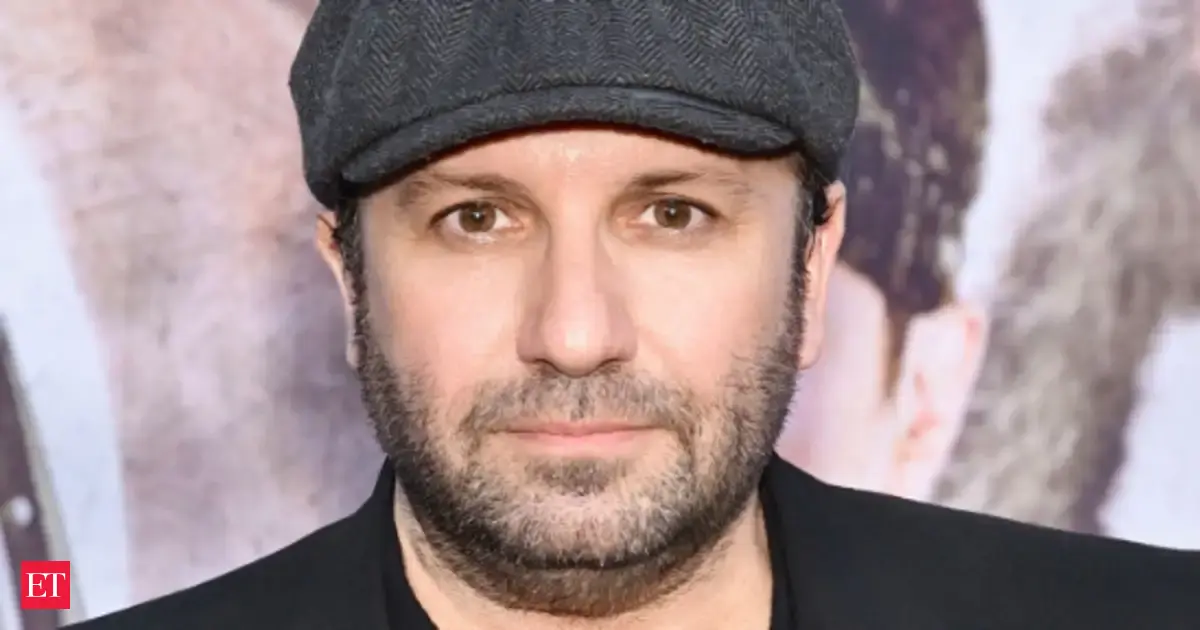
Welcome to Foreign Policy’s Africa Brief.
The highlights this week: Ghana faces increased scrutiny over its handling of third-country deportations from the United States, Guineans vote on a new draft constitution, and the criminal trial of South Sudanese First Vice President Riek Machar begins.
Inside Ghana’s Deportations Controversy
Over the weekend, 11 West African migrants who had been sent to Ghana by the United States were deported again—some to their home countries, where they fear for their safety.
The migrants were suing the Ghanaian government for unlawful detainment at the time of their deportation. Their lawyer, Oliver Barker-Vormawo, told a Ghanaian court on Tuesday that deportation “is precisely the injury we were trying to prevent.” The judge subsequently dismissed the lawsuit.
The deportees were part of a group of 14 migrants that the Trump administration sent to Ghana on Sept. 5 via its third-country deportation deal with Accra; Ghanaian Foreign Minister Samuel Okudzeto Ablakwa said last week that the government expects 40 more deportees from the United States in the coming days.
Ghana’s handling of the deportations has been marked by confusion and controversy. The government claimed last week that all 14 migrants had been sent back to their countries of origin, even as their lawyers said that 11 continued to be detained in a Ghanaian military facility outside the capital of Accra. Ghana also said that the migrants were all Nigerians and a Gambian national, but court documents showed that they came from Liberia, Mali, and Togo as well.
The government’s conflicting statements have sparked anger among Ghana’s opposition lawmakers, who have argued that the U.S. deal is unconstitutional and should be suspended because President John Mahama’s administration did not consult the Ghanaian parliament.
The opposition has also said that the deal risks the country “being perceived as aligning itself with the U.S. government’s current immigration enforcement regime, one which has been criticized as harsh and discriminatory.”
Five of the 14 individuals deported to Ghana have filed a separate lawsuit against the U.S. government, alleging that they were put in straitjackets for 16 hours during the flight to Ghana and faced “squalid conditions” there.
Ghana struck the deal with the United States as it faced increased pressure from Washington to accept migrants. In March, 150 Ghanaians were detained in the United States awaiting deportation. Four months later, the Trump administration imposed major visa restrictions on Ghanaians.
“We were included in 36 countries that were going to be placed on a visa ban,” Mahama told local media earlier this month when explaining his country’s decision to agree to a deal.
Yet Mahama’s administration insisted that the decision was rooted primarily in altruism toward other West Africans. “We just could not continue to take the suffering of our fellow West Africans,” Ablakwa said.
Ghana is part of a growing list of African nations that have accepted third-country deportation deals with the United States, including Eswatini, Rwanda, South Sudan, and Uganda. The terms of the agreements have not been made public, but according to Human Rights Watch, the Rwandan deal includes $7.5 million in U.S. financial support, and Eswatini’s includes around $5.1 million to build “border and migration management capacity.”
African governments accepting those deals risk “violating international law,” Allan Ngari, Africa advocacy director at Human Rights Watch, said. Ngari urged the African Union to “reiterate that deportations that do not afford people an opportunity to seek protection from persecution or torture are unlawful, abusive, and unacceptable.”
The Week Ahead
Wednesday, Sept. 24, to Thursday, Sept. 25: The U.K.-Africa Business Forum is held in London.
Thursday, Sept. 25: The Africa Energy Investment Summit is held in New York.
Thursday, Sept. 25, to Saturday, Sept. 27: Seychelles holds presidential and parliamentary elections.
Tuesday, Sept. 30: The United Nations Security Council discusses extending the Kenya-led Multinational Security Support Mission in Haiti, whose mandate expires on Oct. 2.
What We’re Watching
Malawi’s election. Malawian President Lazarus Chakwera has conceded defeat in presidential elections held last week. A stagnant economy, fuel shortages, and rising inflation fueled support for Chakwera’s main competitor and predecessor, former President Peter Mutharika.
“I hear those frustrations, and I accept responsibility for the places where my administration fell short,” Chakwera said. Official results declared late on Wednesday showed Mutharika won with 57 percent of the vote, compared with Chakwera’s 33 percent.
Guinea referendum. Guineans voted on a draft constitution on Sunday that would allow Gen. Mamady Doumbouya to run for president. Doumbouya, who led a military coup in 2021 that ousted autocratic President Alpha Condé, previously failed to meet a 2024 deadline set by the Economic Community of West African States to hand back power to a civilian government.
Among other changes, the constitution would allow members of the junta to run for office, extend the presidential term from five to seven years, and allow the president to directly appoint one-third of the country’s senators. Provisional results suggested that around 89 percent of voters supported the reforms.
The country’s main opposition parties, which were suspended ahead of the referendum, described the ballot as a “charade” with a pre-determined outcome. Critics also say the referendum was little more than a path to legitimize the military’s power grab.
Kenyan extradition. A British soldier accused of murdering 21-year-old Kenyan woman Agnes Wanjiru in 2012 may soon face an extradition request after a decade of public pressure on the Kenyan government. Last week, Nairobi’s high court issued an arrest warrant for Robert James Purkiss, who has been formally charged with Wanjiru’s murder.
Wanjiru’s body was found in a hotel septic tank near the British army’s barracks in Nanyuki, around 125 miles north of Nairobi. She had multiple stab wounds and was reportedly last seen with British soldiers. According to a Sunday Times investigation in 2021, British troops allegedly paid Wanjiru and other local women for sex the night she was killed.
In 2023, the Kenyan government began formal investigations into complaints of gross human rights violations allegedly committed by a British training unit. Britain has kept military personnel in Kenya since the country gained independence from the United Kingdom in 1963; around 200 British troops are based there permanently.
South Sudan’s VP in court. The criminal trial of South Sudan’s suspended first vice president, Riek Machar, began on Monday in the capital of Juba. Machar has been under house arrest since March after his 2018 power-sharing arrangement with President Salva Kiir broke down.
Machar and others face various charges including treason. Kiir accuses Machar’s party, the Sudan People’s Liberation Movement-in-Opposition, and its military wing of colluding with the White Army, an armed group that Kiir’s army has been fighting in Upper Nile state. Machar’s lawyer argued that he should not be on trial because he has immunity as a sitting vice president.
Meanwhile, a U.N. report released last week described the unfolding conflict as “entirely engineered” and noted that a “corrupt elite” was siphoning the country’s wealth for “personal gain.” According to the report, an infrastructure program funneled an estimated $2.2 billion to political elites including businessman Benjamin Bol Mel—Kiir’s handpicked successor who was appointed as vice president in February.
Mali’s mining code. Mali’s military leadership officially applied a new mining code—which increases state ownership from 20 percent to 35 percent and royalties from 6.5 percent to 10 percent—to new extraction and exploration contracts on Friday.
The agreements concern mines operated by Australia’s Resolute Mining; Canadian company B2Gold; and Ganfeng, China’s largest lithium producer.
Meanwhile, four Barrick Mining employees remain in jail after the Canadian miner rejected the junta’s demand to increase state royalties and equity stakes.
This Week in Culture
Millenia-old scrap. A priceless 3,000-year-old bracelet stolen from the Egyptian Museum in Cairo was melted for scrap gold, Egyptian authorities said last week.
The artifact dates back to around 1,000 B.C. and belonged to King Amenemope. It was stolen by a restoration specialist before it was slated to be sent along with other treasures to an overseas exhibition at the Scuderie del Quirinale museum in Rome. It eventually sold for around $4,000.
The theft comes as Cairo prepares for the full opening of the world’s largest archeological museum—the $1 billion Grand Egyptian Museum—on Nov. 1.
FP’s Most Read This Week
The End of Development by Adam Tooze
America’s Infuriating and Irreplaceable Role at the U.N. by Richard Gowan
Trump Is Learning Geopolitics 101 in Real Time by Suzanne Nossel
What We’re Reading
Russia’s war recruits. A series of investigations by ZAM Magazine and Premium Times details how Moscow promised employment and vocational training to young job seekers from Africa’s Great Lakes region, as well as Zambia and Cameroon, but ended up sending some of them to the front lines in Ukraine and having many of them assemble drones in dangerous labor conditions.
In Zambia, young women were lured through brochures and “events hosted by Russian-linked associations in the capital, and even talk shows on private TV” with “smiling girls in school-like uniforms, accompanied by testimonials praising the wonderful opportunities,” journalist Charles Mafa writes.
Nigeria’s forced returns. Since 2021, the Nigerian government has been closing camps that host more than 1 million internally displaced people, claiming it has nearly defeated Boko Haram and that conditions are safe for people to return to their homes.



